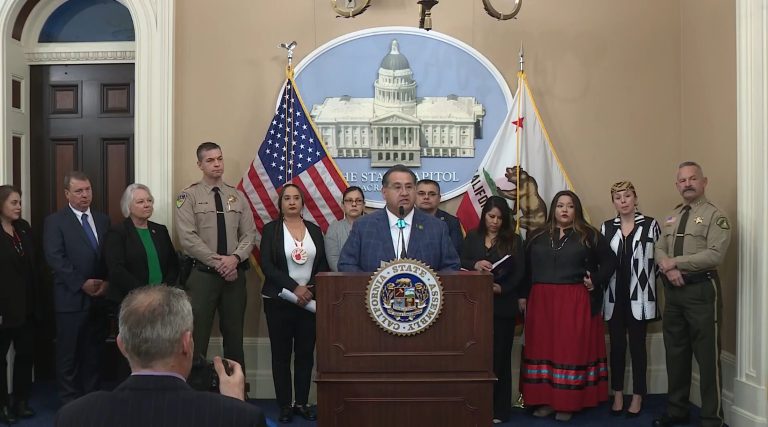Podcast: Play in new window | Download | Embed
Two large regional Alaska tribal groups took their fight to overhaul federal management of pollock fisheries to Anchorage U.S. District Court last week.
The Association of Village Council Presidents and the Tanana Chiefs Conference are suing the National Marine Fisheries Service.
As KNBA’s Rhonda McBride reports, both tribal organizations say the federal agency is using outdated environmental studies to set catch limits.
The tribes say the faulty data has contributed to the collapse of salmon runs.
Salmon are not targeted in the pollock harvest but are taken as bycatch. And although they are a tiny slice of the 4.4 billion lbs. fishery, AVCP’s attorney, Coralette Waite, says the result has been devastating.
“The reality on the ground is that every salmon counts, and unfortunately for our region and for our families and our community, there are winters when families go without salmon, because of the impacts of using outdated strategies.”
During oral arguments on Thursday, Kate Glover, an attorney for Earth Justice, spoke on behalf of the tribes.
She told U.S. District Court Judge Sharon Gleason that federal managers have failed to take into consideration major changes in the ecosystem, due to a warming climate.
“It’s been breaking records in terms of loss of sea ice and the disappearance of the cold pool in the Bering Sea salmon runs have been at record lows in recent years and there have been massive die offs of marine mammals and seabirds. None of that is comparable to what’s happened in the past.”

(Photo: Rhonda McBride)
Glover argued that federal managers are relying on data that is two decades old. The lawsuit calls for new studies and immediate management changes.
In her response to the tribes, federal attorney Jennifer Sundook, said there have been a number of new regulations that have resulted in lower bycatch and less impact on seabirds.
And while Sundook concedes that some of the changes in the Bering Sea ecosystem are unprecedented, she argued that temperature fluctuations are cyclical and not enough to affect the overall management of the fishery.
She said the tribes are taking the data out of context.
Judge Gleason has taken arguments from both sides under advisement and is expected to make a decision in the case in a few months.

Flooding in North Carolina following Tropical Storm Helene. (Courtesy Sgt. 1st Class Leticia Samuels / North Carolina National Guard)
Over the weekend, President Joe Biden approved a Major Disaster declaration for North Carolina, including for the Eastern Band of Cherokee Indians, to help people access funds and resources to recover from Hurricane Helene.
The funds are available for essential items like food and water, repairs, or a temporary place to stay.
In preparation for the storm, the Eastern Band of Cherokee Indians declared a state of emergency last week.
The tribe still plans to hold its Cherokee Indian Fair this week.
In a statement issued by tribal leaders, they said they’re moving forward with the fair with a deep understanding of the devastation caused by the hurricane to surrounding areas.
They said the fair represents a time to gather, reconnect, and strengthen bonds.
The tribe will gather supplies during the fair to help those in need.
Events are taking place across Canada Monday for Orange Shirt Day, which honors survivors of Indian residential schools.
Also known as National Day for Truth and Reconciliation, it recognizes and reflects on the history and ongoing legacy of the schools, and remembers the children who never returned home.
Manitoba Premier Wab Kinew says events taking place across the province are learning opportunities.
In 2023, Manitoba established Orange Shirt Day as a provincial statutory holiday.
#OrangeShirtDay is a day for survivors to be reaffirmed that they matter, and so do those that have been affected. Most importantly, this day is a chance celebrate Indigenous peoples and culture for all Manitobans. pic.twitter.com/3yIAAJhEJc
— Manitoba NDP Caucus (@ndpcaucus) September 30, 2024

(Courtesy Asm. James Ramos / Facebook)
On Friday, California Native American Day, Gov. Gavin Newsom (D-CA) signed seven tribal bills.
The bills introduced by Assemblymember James Ramos (Serrano/Cahuilla/D-CA) include protections for the Indian Child Welfare Act, strengthens the Feather Alert for missing Indigenous persons, and requires schools to teach about the impacts of Missions and the Gold Rush.
Get National Native News delivered to your inbox daily and stay up-to-date on the 2024 Native Vote. Sign up for our daily newsletter today.



